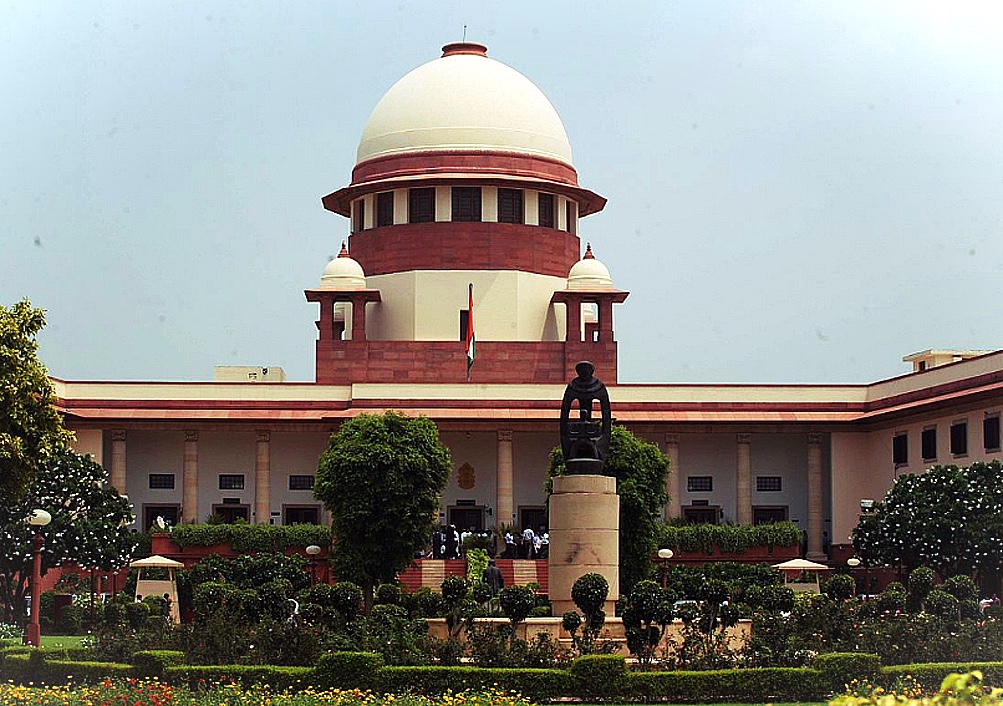Govt’s criticism can’t be ground for penal action, says Supreme Court

New Delhi, December 8: Criticism of the government, even in the strongest terms, must be protected from criminal prosecution under charges of hate speech or public mischief, ruled the Supreme Court on Monday, outlining the contours of hate speech and the constitutionally protected freedom of expression.
In a 128-page judgment, justices AM Khanwilkar and Sanjiv Khanna held that “disloyalty” to the government by law and comments was not an offence if it did not call for violence and public disorder, the Hindustan Times reported.
The judges, who were hearing a petition by journalist Amish Devgan to quash FIRs over his controversial comments on Sufi seer Moinuddin Chishti, also underlined that “political speech relating to government policies requires greater protection for preservation and promotion of democracy” as freedom to express and speak is the most important condition for political democracy.
“Comment or criticism of the government action, in howsoever strong words, must be protected and cannot be a ground to take penal action unless the words written or spoken, etc have pernicious tendency or intention of creating public disorder,” said the bench, adding that law and policies are not democratic unless they have been made and subjected to democratic process including questioning and criticism.
“Dissent and criticism of the elected government’s policy, when puissant, deceptive or even false would be ethically wrong, but would not invite penal action…Government should be left out from adjudicating what is true or false, good or bad, valid or invalid as these aspects should be left for open discussion in the public domain,” held the court, pointing out that elected representatives in power have the right to respond and dispel suspicion.
The court maintained that without exciting the feelings that trigger public disorder by acts of violence, “political views and criticism cannot be made subject matter of penal action” because there is difference between ‘government established by law’ and ‘persons for the time being engaged in carrying on administration’.
“Disloyalty to the government by law and comments even in strong terms on the measures or acts of the government so as to ameliorate the condition of the people or to secure cancellation or alteration of those actions or measures by lawful means, without exciting of those feelings of enmity and disloyalty which imply excitement to public disorder or use of force, is not an offence,” asserted the bench.
The court clarified that what would not be protected is an anti-democratic speech in general and political extremist speech in particular, which has no useful purpose, if and only when in the nature of incitement to violence that ‘creates’, or is ‘likely to create’ or ‘promotes’ or is ‘likely to promote’ public disorder.
During a television show on June 15, Devgan made objectionable comments against the seer held in high esteem by tens of thousands of devotees. The journalist tweeted his apology soon after the show, but multiple FIRs were registered against him across the country under laws related to hate speech and outraging religious feelings of a community.
The court declined to quash the FIRs on the ground that it would be for the trial court to examine the content of the TV debate to ascertain whether his comments violated any law or not. It, however, clubbed all the FIRs into one case to be tried at Ajmer in Rajasthan, and also protected Devgan from arrest till the completion of investigation on the condition that he will cooperate with the probe.
At the same time, the judgment, authored by Justice Khanna, extensively discussed the concept of hate speech, as it said that any attempt at dissemination of discrimination on the basis of race, religion, caste, creed or regional basis must be condemned.
Describing ‘tolerance’ as a great virtue, the court said, “Dignity of citizens of all castes, creed, religion and region is best protected by the fellow citizens belonging to non-targeted groups and even targeted groups. As stated earlier, in a polity committed to pluralism, hate speech cannot conceivably contribute in any legitimate way to democracy and, in fact, repudiates the right to equality.”
Sign up for our weekly newsletter to stay up to date on our product, events featured blog, special offer and all of the exciting things that take place here at Legitquest.




Add a Comment